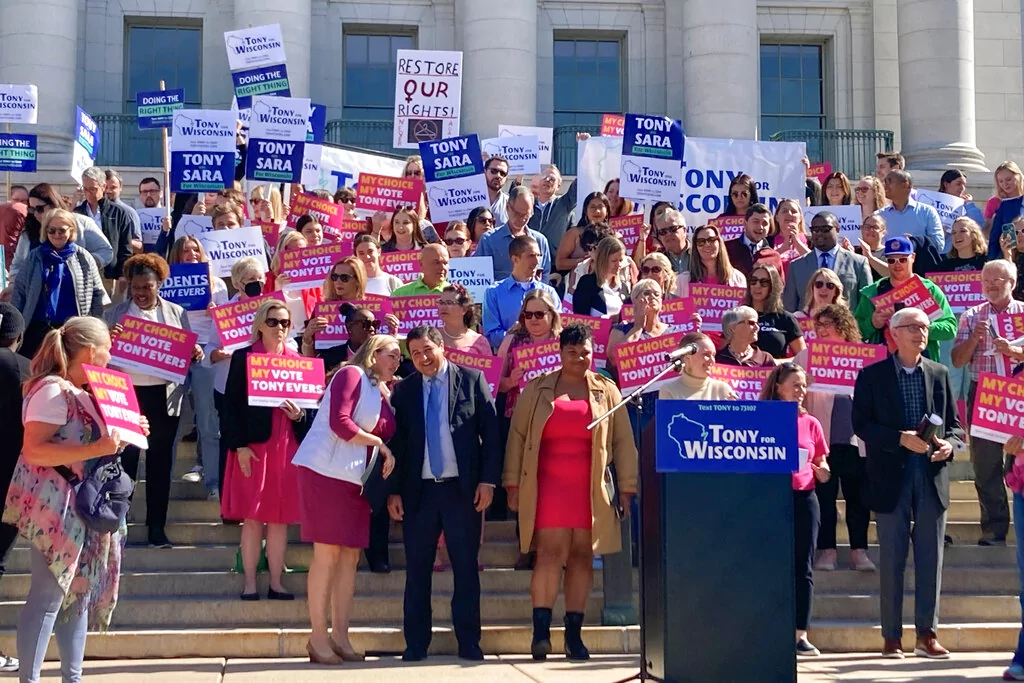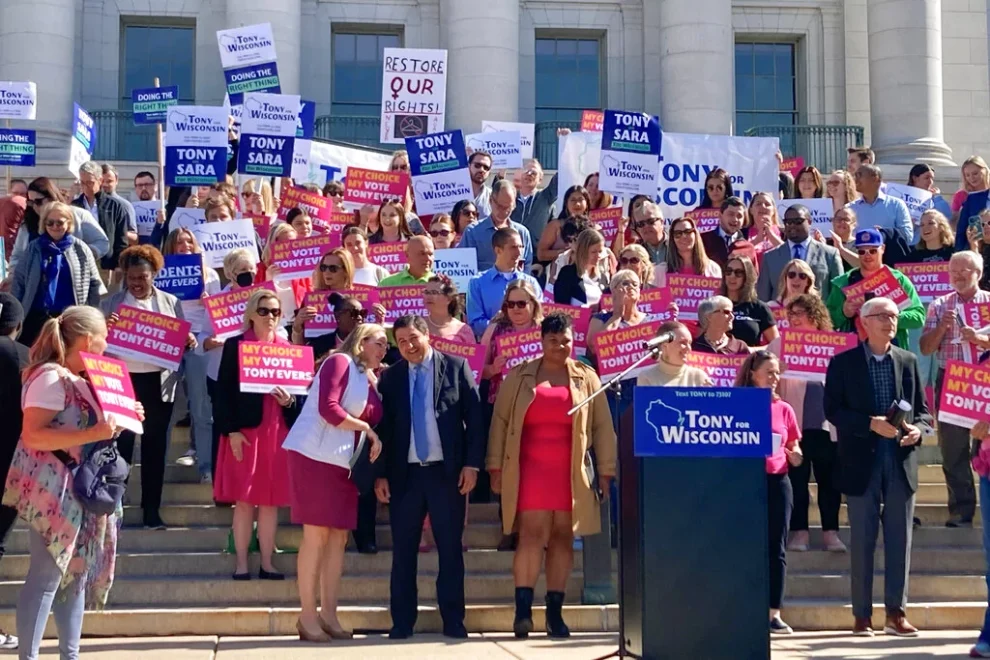The Wisconsin Supreme Court will hear oral arguments Monday on whether the state’s pre-Civil War abortion ban will remain in place.

The state’s Supreme Court is controlled by majority liberal justices, one of whom said she supported abortion rights on the campaign trail. The ruling is expected to take weeks, making the oral hearing a formality in the legal process.
The court’s three Republican justices stand as the minority, making the hearing appear to be an easy decision for the liberal majority. The minority has accused the liberal justices of playing politics with abortion, but the court’s decision could be a defining moment for abortion rights, as 58% of Wisconsinites said the procedure should be legal in all or most cases.
Wisconsin’s abortion ban was first passed in 1849, making anyone who killed a fetus, except to save the mother’s life, guilty of manslaughter. The law was added to ten years later, outlawing a woman from causing her own miscarriage. The law’s language was altered in the 1950s, stating that killing an unborn child or killing the mother with the intent to kill the unborn child was a felony. The revision also allowed for a doctor, if in consultation with two other doctors, to perform an abortion to save the woman’s life.
The law was nullified after Roe v. Wade was decided in 1973 since federal mandate overrules state law. Following the repeal of Roe in 2022, the law went back into effect. Wisconsin lawmakers enforced the ban almost immediately after the repeal but were also met with some pushback.
Wisconsin’s Democrat Attorney General, Josh Kaul, filed a lawsuit against the law’s enforcement in 2022, saying the state’s 1985 law allows abortions before the gestational period of 21 weeks and supersedes the 1849 ban. However, Sheboygan County District Attorney Joel Urmanski, a Republican, believes the ban and the 1985 law can coexist because the latter law never legalized any form of abortion.
Planned Parenthood stopped performing procedures after Roe was overturned but resumed business again when Dane County Circuit Judge Diane Schlipper ruled in 2023 that the 1849 ban outlaws infanticide, defined as killing a fetus without the mother’s consent, rather than constitutional abortion.
CLICK HERE TO READ MORE FROM THE WASHINGTON EXAMINER
Planned Parenthood filed a separate lawsuit in February requesting the state’s Supreme Court to give a ruling on the legality of constitutional abortion in Wisconsin. The court set a date for July, but no oral arguments have been scheduled yet.
In February, Urmanski also asked Wisconsin’s Supreme Court to overturn Schlipper’s ruling without first getting the lower court’s approval. The court agreed to take the case in July as well.
























